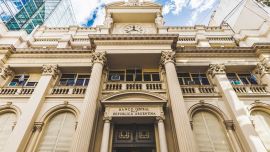The Buenos Aires City government announced Friday that in the coming days it will begin the final round of the Covid-19 vaccination for priority and at-risk groups, beginning with those aged 55 to 59.
According to Health Minister Fernán Quirós, City Hall is going to “advance with vaccination in groups of five years, from 60 years and below” since “age is the main determinant of having a serious and mortal illness.”
“We are going to offer registration to those [aged] 55 to 59 that are strategic personnel, like teachers, security personnel, human development workers and all those that have risky [health] conditions,” he added.
According to the official, this is the “final part of the vaccination” of priority groups in the immunisation campaign devised by the national government.
Offering another piece of good news, Quirós also observed that “a declining curve of positive cases” has been seen in the nation's capital recently.
Nationwide, as of Friday morning, around eight million of Argentina's population of 45 million has received the first dose of a Covid-19 vaccine, and 1.8 million have also received a second dose. In CABA, a total of 948,856 doses have been administered, with 219,509 being second doses.
Regarding the wait for second doses, Quirós said, “those who received Sinopharm all received — or in the coming days they will receive — the second dose. For those that have received the Sputnik V, we have been able to filfil [the second dose] in all those who are in the period of three months after the [first] vaccine.”
Meanwhile, he stressed that those who received the Covishield will have "top priority" when the batch of AstraZeneca vaccines arrives.
National Health Minister Carla Vizzotti confirmed earlier this week that Argentina will receive almost four million doses of the AstraZeneca-Oxford University Covid-19 vaccine in May, most of which will be provided under the framework of the November 2020 contract between the state and AstraZeneca. Around 861,600 doses will arrive via the World Health Organisation’s (WHO) Covax scheme.
Quirós also addressed the outlook on the current restrictions in place in the nation's capital, which are due to be re-evaluated on 21 May.
The doctor said that "if the curve continues to decline at the same rate, surely there will be no need to take another complementary measure. If the measures are not enough because the cases stay close to 2,000 [daily infections], we will have to negotiate with citizens and develop new strategies on how we are going to take care of ourselves later on. "
— TIMES/NA



















Comments